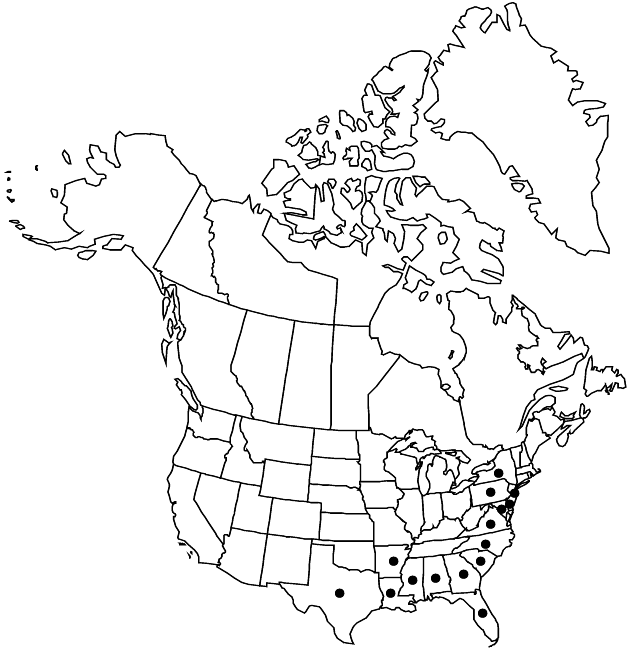Boltonia asteroides var. asteroides
Heads 10–100+; bracts linear-oblanceolate to narrowly oblanceolate, (4–)15–90 × 2–9 mm. Involucres 2.4–3.8 × 3.7–8.7 mm. Phyllaries linear to linear-attenuate or subulate, subequal, membranous margins 0.5–1 mm wide, apices acute; outer 1.7–2.8 × 0.4–0.6(–0.9) mm; inner 2.2–3.9 × 0.3–0.7(–1) mm. Cypselae obovoid, sometimes wingless; pappus awns (0–)0.4–1.2 mm, to 2/3 length of cypselae. 2n = 36.
Phenology: Flowering Jul–Nov.
Habitat: Marshes, wet prairies, roadsides, wet pine savannas, riverbanks, flood plains, swales
Elevation: 0–400 m
Distribution

Ala., Ark., Del., Fla., Ga., La., Md., Miss., N.J., N.Y., N.C., Pa., S.C., Tex., Va.
Discussion
Variety asteroides is considered endangered in Maryland and Pennsylvania. Populations of var. asteroides restricted to the sinkholes of Virginia and New Jersey are atypical in cypsela morphology. They lack pappus awns and wings are reduced or almost absent, characters typical of the cypselae of Boltonia caroliniana. Other characters (arrays with stiff, ascending branches, linear to linear-attenuate, subequal phyllaries, size of leaves and heads) are characteristic of var. asteroides elsewhere. Possibly ancient hybridization between B. caroliniana and var. asteroides may have occurred. Further detailed studies of the populations may help in resolving their taxonomic status.
Selected References
None.